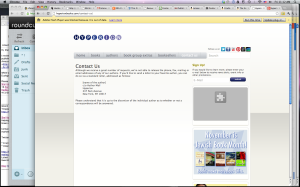Why the TPP is Worse Than Mystery Meat
Guest post by Paul Loeb
Remember the World Trade Organization, which slipped into the shadows after massive Seattle protests in 1999? The same day last week that Congress initially blocked the possibility of fast track approval for the TPP trade agreement, the House voted to overturn rules requiring country-of-origin labeling for meat. Those supporting the vote said they were responding to a World Trade Organization ruling, judging US country-of-origin labeling unfair competition with meat coming from foreign countries like Canada and Mexico, and therefore a violation. They said they had no choice for fear of triggering sanctions or lawsuits from countries exporting meat across our borders.
I don’t know about you, but I like knowing whether my meat comes from Iowa or Uzbekistan, Montana or Mexico, Kentucky or Kenya. So do 93% of Americans, according to a Consumer’s Union survey. People like supporting US farmers, cutting down distance travelled, knowing there will be at least minimal inspection standards, even if the delights of e coli occasionally slip through. It seems commonsensical that we’d want at least the chance to become informed consumers, whether with the origins of our meat, GMO-derived crops, or the amount of sugar and calories in our baked goods.
Maybe the House members are wrong in insisting that the international tribunals that adjudicate trade disputes would deem this a violation. But if this particular House bill passes the Senate and gets signed by Obama, even the mere possibility of a lawsuit will have struck down a wholly reasonable law that protects our health and supports our local economies. And if TPP passes the Senate, other attempts to regulate commerce for the common good will be potentially gutted as well, from attempts at financial regulation to limits on the prices charged for drugs, to environmental rules and seemingly innocuous actions like requiring accurate labeling. Some of this could occur through legal action, and some through the mere fear that such action could occur.
Now maybe TPP won’t contain rules on meat. Maybe it will simply limit other ways we might try to exert our sovereignty over critical choices that affect us. But we do know that this agreement—involving countries constituting 40% of the global economy—through what’s called the Investor-State Dispute Settlement process, will establish unaccountable tribunals with the power to let corporations collect damages for loss of profits. We don’t know the precise reach of the agreement because ordinary citizens haven’t seen it. Even Congressional opponents were prohibited from taking notes when they looked at it, and “cleared advisors” who’ve seen it have been legally prohibited from talking specifics. Yet we’re told it represents an inevitable future, that the benefits will trickle down to ordinary citizens, and that those who ask reasonable questions about its profound implications are merely obstructionist whiners.
So do we demand full transparency before moving ahead? Or do we trust that the corporations that negotiated these rules have our interests at heart, and would never, in the slightest, harm our democracy? Whether or not the country-of-origin labeling on meat survives or is ended by the House bill and WTO ruling, TPP plays for far larger stakes, the ground rules that affect our very potential to take common action. The meat bill is one more warning that there are some rules and agreements where we should be careful to eagerly swallow.
Paul Loeb is the author of Soul of a Citizen and The Impossible Will Take a Little While


